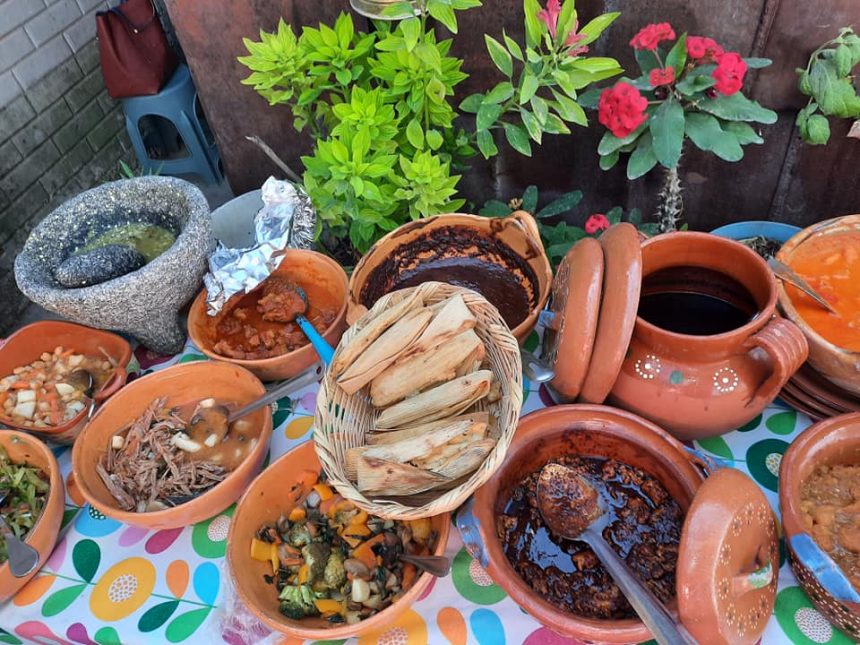Lourdes and Helena are sisters. They both received a molcajete (traditional stone mortar) as a wedding gift from their father, which they have passed on to their granddaughters. In those bowls—essential in a good kitchen—is “where we learned to cook,” says Lourdes. The sisters cultivate GMO-free chile ancho, chilaca, corn, nopal, oats, and alfalfa, and have a food business where they prepare traditional country meals.
The kitchen in their backyard is used for making tortillas, carnitas, and rice in pots over firewood. Next to the house’s wooden structure are tables decorated with local products to tempt diners.
In addition to the decorations, the colors, smells, flavors, and authentic flavors of the countryside are alluring. The sisters serve up pipián (a sauce made from ground pumpkin seeds) as easily as a simple plate of rice, green or red salsa, carnitas, mole with chicken, chicken tamales, or pulque. In fact, they can prepare more than 15 dishes. All the dishes are homemade, and the cheese is made by neighbors.
Wearing traditional regional outfits, Helena, Lourdes, and their daughters pass tamales here, a quesadilla there, a plate of rice to the right, one with mole to the left. “Hmmmmmm!” exclaim guests whenever a flavor provokes emotions.
Once the food service slows and the cooks are less busy, Helena and Lourdes show off their small plots of land. They display their chile ancho and chilaca plants. They laugh as they point out a particular chile because they’re embarrassed to say its name: joto (a derogative term for “gay”). This local chile is a blend of ancho and chilaca, and is interestingly colored. It is simultaneously sweet and spicy, and is good in moles or broth.
The cooks live in Terreros de la Sábana, between San Miguel and Dolores. You can reach them on 418 1325 908.

